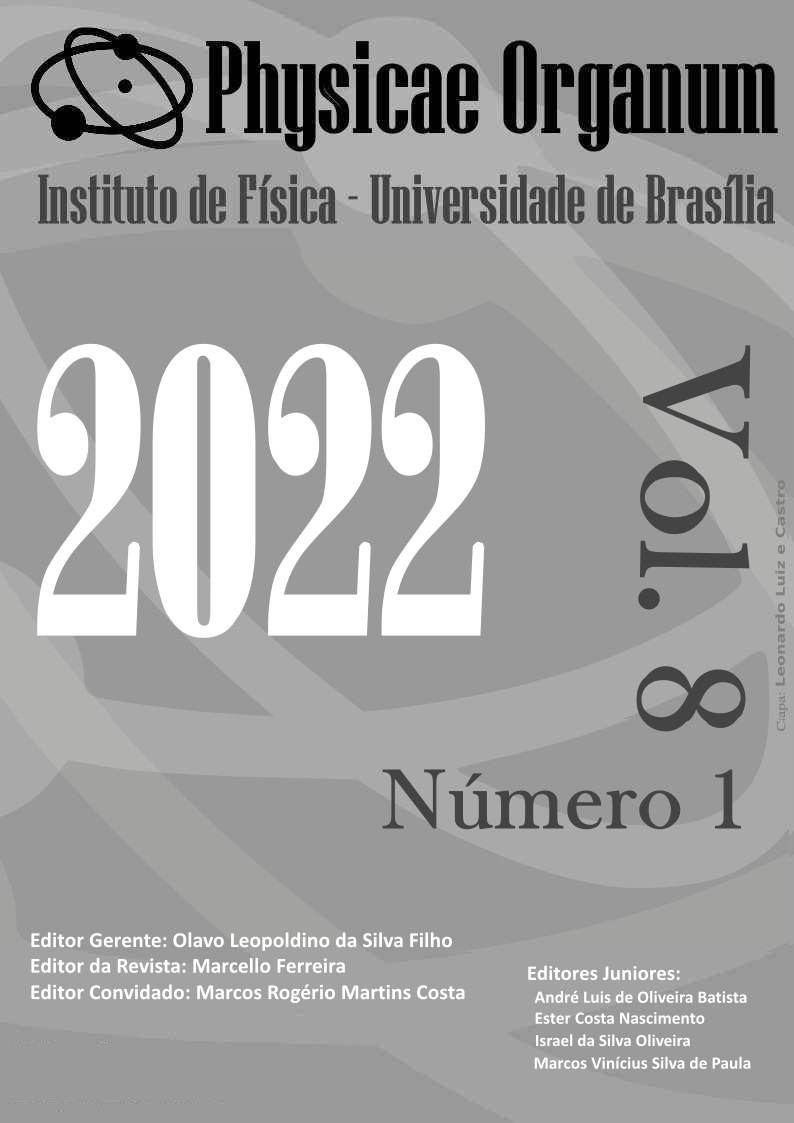ELECTROGAME, THE GAME: A DIDACTIC AND FUN WAY TO STUDY ELECTRODYNAMICS
Keywords:
Electrodynamics. Eletrogame. Board game.Abstract
Several authors point out as a difficulty in learning classes based on the passivity of the students and the protagonism of the teacher. This work, a board game called Eletrogame, seeks to rescue ludicity through the production and use of playful games that, when used as an alternative teaching methodology, have the power to improve coexistence and inclusion among students, facilitating teaching. -learning making the process of knowledge construction more pleasurable. The research, on the topic of Electrodynamics, was applied to a group of students from the 3rd year of High School, in 2019, divided into 3 (three) stages; initially, remote classes were given, then the game was applied and, finally, a questionnaire of opinions and suggestions. The students approved the methodology, classifying it as attractive and engaging, admitting that they needed to develop or improve skills such as communication, self-reflection, self-knowledge and responsibility with themselves to improve their performance in the game.
Downloads
References
BORUCHOVITCH, E.; BZUNECK, J. A. A motivação do aluno: Contribuições da psicologia contemporânea. 4. Ed. Petrópolis: Vozes, 2009.
BRANCO, A. R. M. C.; MOUTINHO, P. E. O Lúdico no Ensino de Física: O uso de gincana envolvendo experimentos físicos como método de ensino. Caderno de Física da UEFS. 13, 2, 2601-2608 (2015).
BROUGÈRE, G. Jogo e Educação. Porto Alegre: Artes Médicas, 1998.
FARIAS, J. D. A.; RODRIGUES, J. R. M.; SILVA, P. C. A. da; MOTA, G. V. S. As casas da Física. Um jogo como ferramenta facilitadora no ensino de Física. Scientia Plena. 15, 7, 1-9 (2019).
KISHIMOTO, T. M. O Jogo e a educação infantil. São Paulo: Pioneira, 1994.
KISHIMOTO, T. M. Jogo, brinquedo, brincadeira e a educação. São Paulo: Cortez, 1996.
LOPES, M. G. Jogos na Educação: Criar, fazer, jogar. São Paulo: Cortez, 2001.
MORO, F. T.; DULLIUS, M. M. Formação continuada de professores nas Ciências da Natureza: Uma análise das publicações em periódicos. Interfaces da Educação. 438-460, 2020.
PEREIRA, R. F.; FUSINATO, P. A.; NEVES, M. C. D. Desenvolvendo um Jogo de Tabuleiro para o Ensino de Física. VII Encontro Nacional de Pesquisa em Educação em Ciências. Florianópolis. 2009.
ROUSE, K. E. Gamification in Science Education: The Relationship of Educational Games to Motivation and Achievement. 2013. Dissertations. 622, Disponível em: https://aquila.usm.edu/dissertations/622, acesso em 16 de junho de 2020.
STAREPRAVO, A. R. O jogo e a Matemática no Ensino Fundamental. Curitiba: Renascer, 1999.
VILELA, E. M.; MENDES, I. J. M. Interdisciplinaridade e saúde: estudo bibliográfico. Revista Latino Americana de Enfermagem. 2003. 11, 4, 525-531. Disponível em: http://www.scielo.br/scielo.php?script=sci_arttext&pid=S0104-11692003000400016 &lang=pt. Acesso em:
mar. 2021.
ZANON, D. A. V; GUERREIRO, M. A S.; OLIVEIRA, R. C. Jogo didático Ludo Químico para o ensino de nomenclatura dos compostos orgânicos: projeto, produção, aplicação e avaliação. Ciências & Cognição, 13, 1, 72-81 (2008).
Downloads
Published
How to Cite
Issue
Section
License
Copyright (c) 2022 Physicae Organum

This work is licensed under a Creative Commons Attribution-NonCommercial-ShareAlike 4.0 International License.
Autores que publicam nesta revista concordam com os seguintes termos:
Autores mantém os direitos autorais e concedem à revista o direito de primeira publicação, sendo o trabalho simultaneamente licenciado sob a Creative Commons Attribution License o que permite o compartilhamento do trabalho com reconhecimento da autoria do trabalho e publicação inicial nesta revista.
Autores têm autorização para assumir contratos adicionais separadamente, para distribuição não-exclusiva da versão do trabalho publicada nesta revista (ex.: publicar em repositório institucional ou como capítulo de livro), com reconhecimento de autoria e publicação inicial nesta revista.
Autores têm permissão e são estimulados a publicar e distribuir seu trabalho online (ex.: em repositórios institucionais ou na sua página pessoal) a qualquer ponto antes ou durante o processo editorial, já que isso pode gerar alterações produtivas, bem como aumentar o impacto e a citação do trabalho publicado (Veja O Efeito do Acesso Livre).




